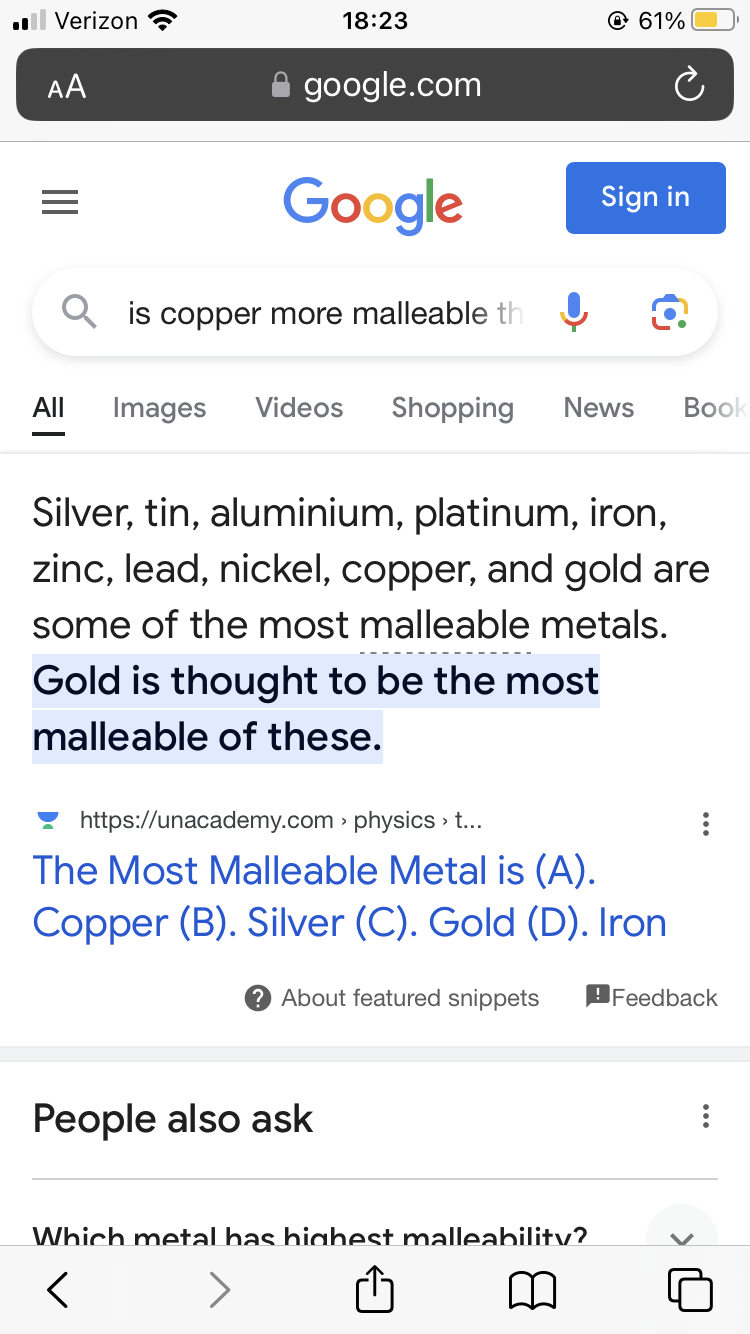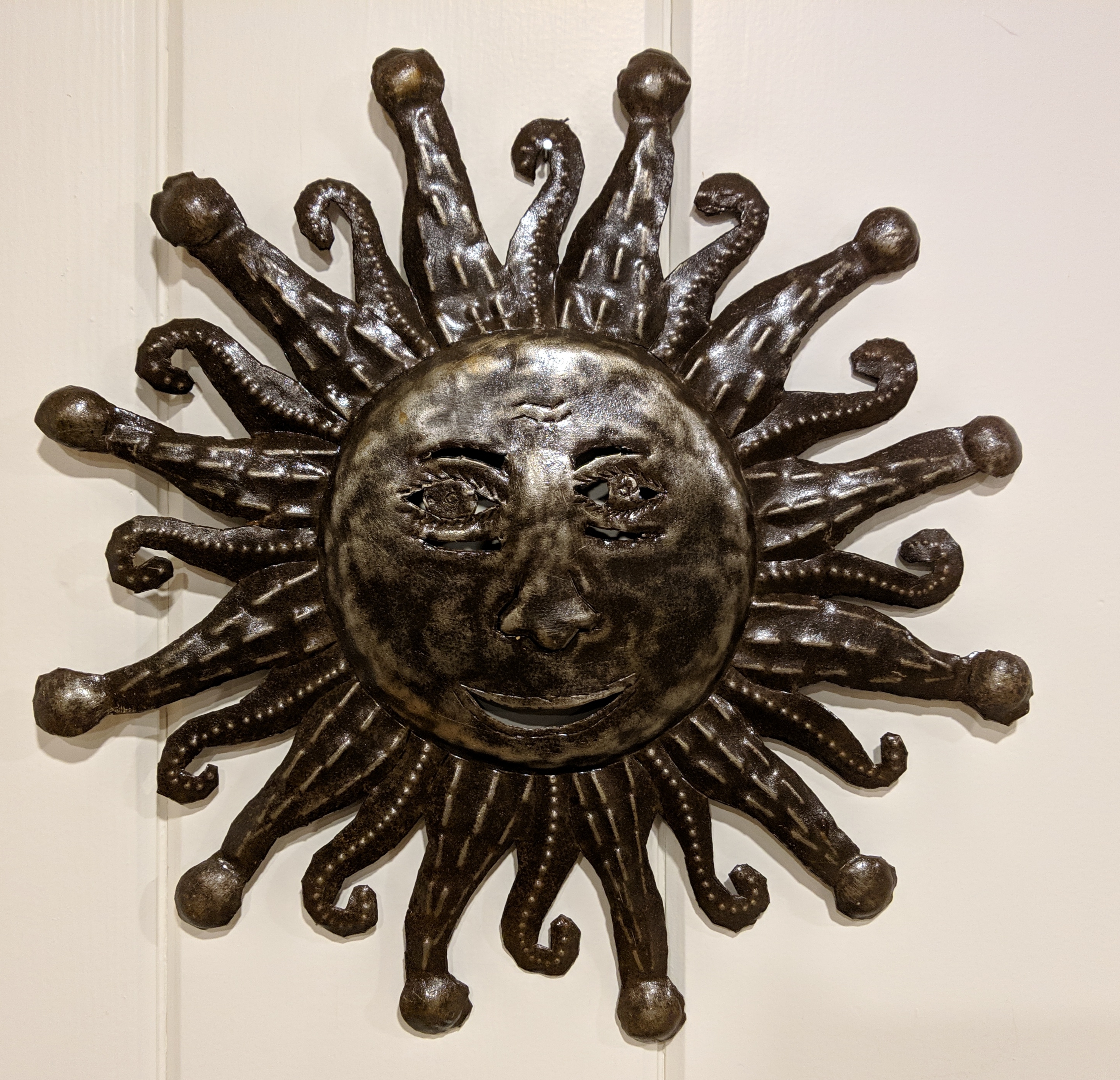This isn’t actually true. In the US, housing has outpaced the value of gold.
In 2023, you would need 254.7 ounces of gold to buy a house, since $495,100 avg home / $1,943 price of gold = 254.7
In 1920, you would need 164.1 ounces of gold to buy a house, since $3,395 avg home / $20.67 price of gold = 164.1.
Fuck, even the gold isn’t safe.
Gold isn’t terribly useful as a metal. Sure it’s valuable but mostly because people see it as valuable and perceptions can change.
Everyone needs a place to live and on top of that land can be used for making money even if land itself isn’t as lucrative.
The same can be said for banknotes, they are quite useless as paper, they are mostly valuable because people see them as valuable and perceptions can change
I’m gonna start carrying houses, food and water in my wallet instead
Dragon ball had it right. Fuck storing Pokémon. I wanna carry around my house
Right, which is why using gold for a currency replacement is folly. They’re both valued based on something other than their real world applications, so if you trust one to stay relevant, you should probably trust the second as well.
Right but at least bank notes are easy to use and don’t require a scale.

Crypto Bois reading this
Yes and no.
Gold has been used as a currency historically for many reasons. It’s inert. It has a low melting point. It’s malleable and easily divisible. It doesn’t tarnish. A piece of gold from 2,000 years ago will be the same weight today as it was then. It also is attractive, which gives it value for jewelry. And, importantly, it’s predictably rare and can be mined.
Today, it’s also valuable for electronics. Its inability to tarnish makes it fantastic if you need a connection to be corrosion resistant.
There’s a reason gold still holds its value even though it’s not used for currency anymore.
Gold’s value isn’t tied to its usefulness. Based on statista, less than 7% of global gold use is for “technology”. The rest of it goes to jewellery, investments and banks.
The quantity you need for gold to be as useful as it’s going to be in whatever application short of aesthetic/monetary value is so low that it just doesn’t make sense for its value to be tied to its actual use. So little gold is used for “real” applications that if that was driving its valuation , it’d be probably 10% as valuable as it is. That’s what people mean when they say it isn’t useful.
I’m pretty sure you are wrong about that. Gold is one of the best conductors, it is extremely malleable, used in dentistry and medicine, electronics, it even protects against radiation.
Gold is extremely useful, just an fyi you are incorrect
Gold is a worse conductor than copper, a much more common metal. There are many metals that are more malleable. Dentistry has moved away from gold and is typically only used for aesthetics. In electronics gold is mostly used to resist corrosion and it’s typically electroplated to do so, because of this the amount of gold use is incredibly small. Finally, almost every metal protects against radiation, hell even skin does that to most radiation and where that differs is in ionizing radiation where most of the time lead is easier to use than gold.
You are incorrect, but I don’t really care that much

deleted by creator
If they produce mass H2 burning cells gold and platinum will rise in price drastically
I doubt fuel cells will take off in mass because of many reasons but mostly because H2 is so damn hard to store. Ultimately fuel cells are a tech for electrical storage and at one point they felt logical but as technology improves they begin to have more troubles. Storing hydrogen is just so damn difficult and it needs to be compressed to reach density for mobile applications.
And let‘s not forget that the average home in 1920 was way more modest than today‘s average home.
The bar in the picture says it’s a kilo which is $65, 344. While I could agree with OP that 10 kilos would give you an average house in higher priced areas like new York or LA, it would definitely buy you several nice houses in 1920.
Now you could buy a house, then you could buy a neighbourhood.
I’m seeing $412K as the average price of a home in 2023, not $495K. And gold was $2,135 in 2023. The price in gold is still higher in 2023, though about 193 bars for a home.
Couple other notes, more related to the post.
1920 is an oddly good year to use. It’s just after WWI. Industrialization and modernization are taking off across the US. Worker’s rights are beginning to take hold and working class people are now able to afford homes. It’s before the Roaring 20s, so you’re not going to get the actual details obscured with the market rush and subsequent depression.
There is a couple important downsides though…
Firstly, mortgages didn’t really exist back then. I mean, they did, but they were horrific. You’d have to go to an insurance company because banks wouldn’t offer them. The terms would give the insurance company full ownership of the property. If you were lucky, it would be a balloon loan - pay only the interest during the 5-10 year term and then pay the entire balance at the end. If you were less lucky, it was a lifelong contract where you only paid the interest plus fees every month.
There was an alternative but most people didn’t have access to it: membership in a Savings and Loan corporation, also known as Building and Loan or thrifts. You’d join as a member and agree to buy X shares every month. If you give a notice (30-90 days usually), you would be allowed to cash out the shares plus interest earned for their actual value. When you wanted to buy a home, you would be allowed to use your shares as collateral. Each monthly payment would pay for the interest and a certain number of shares. Once you had enough shares, you would redeem them to pay off the loan. A bit complicated, but S&Ls were fantastic for the common person. They were owned by the members of your community and all loans went to support said community.
Secondly, kind of related to the first point, there were no 30 year mortgages. Home prices are virtually tied to the monthly payment and a thirty year mortgage allows for lower monthly payments. Prices might get out of line a bit, such as right now, if people believe that interest rates will drop and they can refinance later. Personally, I don’t think we’ll see any drops for at least two years and, even then, we won’t see anything like the 2020-2021 rates unless we experience an economic catastrophe like 2008. You want higher rates when the macro environment is strong and lower rates when it’s weak. Cheap debt in a good economy is basically a handout to the rich - makes you wonder why Trump pushed the Fed to keep them low back in 2018-2019…
Which week are we talking about? Lol
Is there a “they did the math” community here yet?
This post feels like it’s sponsored by the World Gold Council to encourage people to buy gold.
Just ignore that general index funds have higher ROI.
And you don’t need armed guards to keep index funds.
Well, it’s working.
Gold prices must be high
Fucking big gold
FR though, I’ve seen those “BUY GOLD” advertisements on Cable TV aimed at the mentally feeble and elderly, it’s really not cool.
If you had of invested the equivalent amount of money in the Dow Jones index instead of purchasing 10kg of gold and kept it invested from 1920-2024 you would have ~$15 million.
This, precious metals are a hedge against hyper inflation. Not an investment.
So I get the idea of a hedge, but I guess the question on my mind whenever I hear talk about hyper-inflation is “what are you going to do with the gold if society collapses?”. My thought is that if the world economy got so fucked up that the US dollar was worthless, and the government didn’t step in, then wouldn’t we sorta be in a failed state? And if we were in a failed state is the plan to sit on the gold in some sort of fortress to wait for civilization to come back? Hoping that you can defend it and that the incoming civilization doesn’t just take it?
I’ve always assumed you’d melt the gold down and create coins or other tradable sub-amounts of the gold that you could exchange for goods and services. If people are still peopling, they’ll still want a currency to transact with; if the dollar has failed then gold has a historical precedent that would probably make it easier to convince people to trade with you using it as a medium of exchange. It always seems like it’s more suited to be an emergency measure than a plan A to me.
As far as I know, the idea with holding gold in bank storage is, that if hyperinflation occurs, the currency becomes worthless and there will be economic upheaval, but it will not be the apocalypse. And then a new currency will be created and everybody who held physical assets instead of the old currency will be in a way better position.
If society collapsed, resources required to survive have primary value. Food, water, clothes.
But the idea of money will still exist. Precious and rare metals will be worth something in a barter economy.
If you think it would be difficult to defend, you know it would still have value.
The easiest way to defend it is to keep it secret.
This is the way the world worked for a long time. That’s why the idea of a treasure map exists.
Not only that, but SP500 pays dividends practically every year, whereas gold costs money to store securely. $15M in SP500 would have netting something around $300k last year in dividends alone.
Me when I post misinformation online: 😈
When I purposely spread misinformation over the internet

I’m in Canada. 25 years ago my parents bought a home for $130k, they sold it 15 years ago for $500k, it’s now listed for $1.1 million. We are so fucked.
My last house I bought in 2012 for 545k CAD. Sold it 10 years later for 1.3 million. Agree. We are collectively fucked.
Sounds like you’re not doing too bad
I am not. The problem is everyone else is not afforded the same luxury. What is the point of wealth if people are still struggling?
It’s frustrating.
Nah that’s in maple dollars
That’s still about 1mil freedom dollaridoos.
I mean, yeah, you could buy a lot of poutine with it but what else are you gonna do, buy maple syrup?
Poutine, maple syrup and overpriced real estate. The great Canadian tradition.
If you include maintenance and taxes, it actually sold for less than the same amount of money invested in an index fund.
That’s kind of silly comparison, as that money wouldn’t have been available to invest if it hadn’t been spent on a home. It would have been spent on rent instead.
Still a tough bind for someone who isn’t already a homeowner. I’ve put a lot into index funds which have performed really well, but if I sell them now to buy a house and the real estate market shits the bed (which it really should), then I’m in an even worse place. I remember talking to people in 2007 who complained they would “never be able to afford a house”, but three years later their local listings fell by 30-40%.
Look, unless you’re renting it out, your house isn’t an investment. It grows in value and that’s nice, but you’ll spend more on maintenance and improvements than it will increase in value.
Your house is your house.
It will cost you less than paying rent, so it’s absolutely an investment
For sure, it just illustrates that as much as the market can feel fucked up, as an investment housing isn’t necessarily the best. I’ve checked the numbers many times when I hear people talking about their parent buying a house for X$ in 19XX and it’s very rare that they beat the market. It’s the people that bought in 2009/2010 or right before COVID that are the real winners when it comes to real estate as an investment because they made a lot of money for the amount of time, but people who buy as an investment to hold it long term? Nah
Housing can’t be an investment (i.e. exponential growth above inflation) AND an affordable place for people to live for future generations. This mentality is absolutely brain-dead.
I feel like one of these is off by a 0
The bar in the picture is one kilogram or about $65,000 US dollars. Ten bars would buy a very nice house in my area.
it might get you a small fixer upper in my home town.
Meth lab or woop woop in mine
10 of these will buy you a house in 20230
Which one? Gold was $20.67 per Troy ounce in 1920, that’s about $664.55 per kilo. 10 kilos about $6,645.55 I’m believing the first search result https://www.countryliving.com/life/g33398396/what-things-cost-100-years-ago/ says that matches up. Gold is about $64,900 per kilo today so $649,000 for 10 bars, that’s a low cost of living middle class place or HCOL very small house that needs renovation. I could see you meaning these days and houses in some areas are in the $6 million range, guess they should be location specific.
$649,000 for 10 bars, that’s a low cost of living middle class place or HCOL very small house that needs renovation.
What the fuck is going on with house prices up there
Sub 2% interest rates for 2 years for loans and then jumped to ~8%
Market is wildly variable.
And probably the fact that post 2009 the construction industry collapsed and a lot fewer homes are getting built
Median home price in the US last year was about 450k, so I’d say your scale is a bit skewed.
Jesus. Got my house 7-years ago on a Habitat for Humanity mortgage, for which you pay cost. ~85K? Also, no interest on the loan. Also, no property tax.
3-bed/2-bath/80’x200’ lot/1,140sq. ft. living space/$550mo.
Call your local Habitat chapter, go to the next meeting and learn. Keep going with the program if you can. Took my ex-wife and I 14-months, start to finish.
I can’t tell you the qualifications, they change and are different from one area to the next. I can give you some basic answers, at least I’ll try.
Yeah I was going to say Upper Middle Class but I’ve seen some dumpy houses for those prices and it’s really titled by if you bought when interest rates were low vs the last year or so.
Where did you get the gold price? This page says $269.
He’s taking kilograms, you’re talking ounces.
It’s weird though my 1920s price research shows $20.67 per Troy Ounce. Example: https://sdbullion.com/gold-price-by-year
I might be mistaken and that’s the US government’s set price for gold in the early 1900s, a lot of these other links show it closer to 10x that value.
Is it me?:(
Currently worth $650,000. I don’t think it’s off.
Oh look the gold bugs are back
Ignores that common folk can neither buy at spot nor sell at spot.
10 kg gold Dec. 2023 = ~$727,591 = $2062.92 * 10 * 35.27 oz/kilo
10 kg gold June 1920 = ~$105,810 = ~$300 * 10 * 35.27 oz/kilo
seems much higher than the respective housing cost for an average home in both cases
$300/oz in 1920?
Memes from the alternate universe where we still use the gold standard
In 1920, the average price of gold per troy ounce was $20.68USD[26.2 kB pdf]; 1 Kilogram = 32.15075 Troy ounces. Average house price in the 1920’s was $6,296.
$20.68 USD * 32.15075 oz t = $664.87751 USD * 10 = $6648.7751 USD
In 2023, the average price of gold per oz t was $1,940.54 and the average home price was $495,100.
$1,940.54 USD * 32.15075 oz t = $62,389.81641 USD * 10 = $623,898.1641 USD
This meme is credible, excepting errors in my assumption that 1 kilogram of gold is equivalent to 1 kilogram of common material.
At the same time, it picks and chooses its dates. Gold has been volatile, with the price oscillating between $2,100 USD in 1980, $470 USD in 2001, and back up to $2,200 USD in 2011.
The meme may be true, but it is less meaningful than you might assume at first glance. The obvious comparison is those memes comparing wages or dollar values with house prices, where obviously inflation has made a huge difference in 100 years. However, you should compare it to other types of investment, so does a stock index grow as fast as home prices or not?
They’d actually also be very likely to get you targeted by thieves as well. Even if you tried to keep quiet about them, there would be an entire chain of custody which would be required inform when such a large quantity of gold bullion where sold or bought, as well as their transportation and the transportation’s insurance, if you don’t get scammed in the process.
This is always my question. Like you see these movies about gold and diamond heists, but then… Wtf do you do with them? Who are you selling this shit to at retail value, or anywhere close to it?
I feel like if somone handed me a bag of diamonds right now I’d have no idea wtf to do with them.
You’d have no idea what to do with them because you’re not in organized crime. I would go look at Larry Lawton on YouTube. I think he posts a lot but if you go to his earlier posts he talks about his organized crime life. Wild.
I’m reminded of so many fiction subplots where a character has acquired an extremely valuable XXX they want to sell.
More often than not, it’s such an important object that any interested parties would sooner hire mercenaries to get it, and kill its owner as a witness (and in many of those stories, exactly that happens). Past a certain value, many items are not actually valuable for common people.
wood for sheep?
I almost missed this.
I’ll just quote myself from my last game where I had a monopoly on the sheep…
YOU DARE COME TO THE MASTER SHEPHERD WITHOUT A TITHE IN HAND?
This is Catan meme? Because there’s no gold in Catan, or im confusing it with other game.
The title is “gold for house” and the body is “wood for sheep” implying they are a similar type of trade, not implying both are from Catan.
Neither “gold” nor “house” exist in Catan.
I’ll trade my RuneScape account for one.
If I was lucky enough to be in your shoes, I would hold onto the RuneScape account. Gold may go out of style at some point. /s…sort of.
Alright. You drive a hard bargain. 2 bars of gold then!
So what you’re saying is I should invest in gold because it increases in price at the same rate as housing?
So I never actually make any progress? And then in the end I just have a bunch of gold? Why wouldn’t I just buy the house then?
Well you can buy gold little by little and in the end you sell it and buy a house.
Or as somebody pointed out you can invest in an index fund and get higher returns
Gold doesn’t require maintenance
No, you’re missing the point. Invest in housing.


















